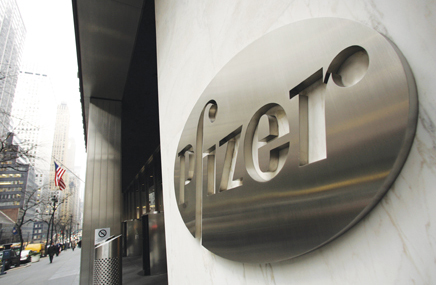Pfizer has settled a marketing lawsuit for $321 million. The Boston Globe reports that the settlement closes a class-action lawsuit by health insurers and government payers for illegally marketing the epilepsy drug Neurontin, which was made by now-subsidiary Warner-Lambert Co. Plaintiffs said the drugmaker promoted the drug for conditions as diverse as pain, bipolar disorder and migraines, even though it was indicated for epilepsy and post-herpetic neuralgia.
The FDA’s latest DTC advertising study is going to assess whether the number of times consumers see drug ads changes their perception. Regulatory Focus says the concern is partly based on studies that indicate that seeing ads multiple times tends to “improve product attitudes and recall for product attributes.” The FDA wants drug ads to provide information and to key consumers into potential risks and side effects. RF notes that the FDA could be concerned about multiple ad impressions if the study shows bombarding viewers may make a “product seem safer than it actually is.”
Rising generic drug prices now have the Department of Justice’s attention. The Wall Street Journal reports that the agency issued subpoenas to two generic drug makers last week, asking about contacts with other drugmakers. The subpoenas went to two generic makers, and the Journal reports that an Impax sales rep has been asked to provide testimony and documents “with any competitor about the sale of generic drugs.” The DOJ’s inquiry is just one inquiry about what is going on with generics. The New York Times reported in July that the category is no longer the bargain it once was, and noted that prices for some generics have soared. The test case for the article was the heart drug digoxin, which one patient said went from costing her $1.15 to $90. Congress has also taken note of prices. The Journal noted in October that lawmakers sent letters to five pharmaceutical companies, including Actavis and Dr. Reddy’s seeking information that will explain why prices for some generics have jumped.
AbbVie and Gilead announced new data Tuesday for their respective HCV combination therapies. Gilead summarized results of several Phase-II and Phase-III studies for recently approved Harvoni (ledipasvir/sofosbuvir) in patients with limited to no treatment options and advanced liver disease. In a pooled analysis, 96% of patients taking Harvoni with or without the add-on ribavirin achieved sustained virologic response (SVR)—or were cured—after 12 or 24 weeks. AbbVie released Phase-II and Phase-III data from trials evaluating its combo therapy—ombitasvir/ABT-450/ritonavir and dasabuvir—in HCV patients co-infected with HIV, liver transplant patients and those with genotype four of the virus. 93% (29/31) of HCV patients co-infected with HIV demonstrated SVR after 12 weeks. 97% (33/34) of liver transplant patients achieved SVR after 12 weeks, and 90% (40/44) of patients with genotype four—who were new to HCV therapy—demonstrated SVR after 12 weeks without taking ribavirin.
Drugmakers may receive a $2 billion windfall from the US government in the form of Ebola funding, Bloomberg tells us. President Barack Obama requested $6.2 billion in emergency funding to control the Ebola virus in West Africa. Those requests include goals around expediting testing of vaccines and drugs to treat the epidemic. $2 billion is expected to be drug companies’ slice of the pie based on previous contract allocations. Congress has approved $838 million in Ebola money this year already, the news service reports.







